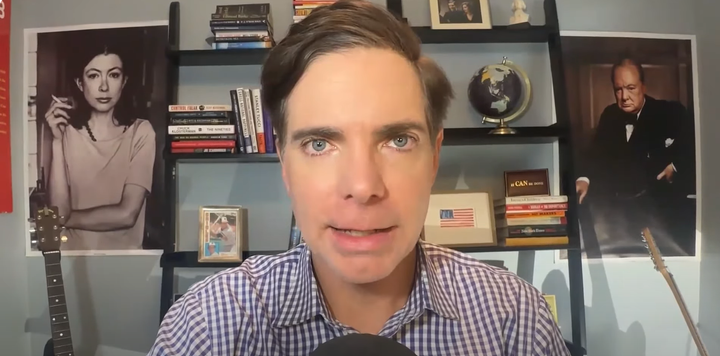Why Isn't West Virginia a Swing State?
Swing states are balanced politically between the two main parties. West Virginia is heavily tilted to one party, so it lacks the visibility and clout of a swing state. Why is this so?

West Virginia made a transition about twenty years ago from a solidly Democratic state to a solidly Republican state and the transition happened relatively quickly. It seemed to have a lowkey start in 2000 when the state voted for the Republican presidential candidate (George W. Bush) after a 12 year stretch of voting Democratic. In 1998 our 3 Congressional representatives were all Democrats. Then from 2000 through 2008 we went down to 2, then to 2012 it was down to 1, and after 2014 to none. /Following the 2020 census we also lost one of our House of Representative slots, so we’re now down to 2, both Republicans.
Over roughly the same period we had 2 Democratic U.S. senators, but in 2014 that went down to 1. In 2024 we are officially down to no Democratic senators, since the last one, Joe Manchin, left the party to become an Independent.
Our state legislature went through a similar transition. Our last Democratic governor was elected in 2016, but in a matter of months he changed his allegiance to Republican, so effectively our last Democratic governor was elected in 2012.
If we look on 2012 as the date that we became a solidly Republican state, it took only 12 years to make the switch, not nearly long enough for us to count as a swing state. Today we’re what is called a trifecta Republican state, with the governorship, the House of Delegates, and the State Senate all in control of Republicans, as are 3 of our 4 Federal elected officials.
Pundits claim, rightly, that we’re no longer a competitive state. Not only have we gone full tilt Republican, but the vote margins in elections show that we are gung-ho full tilt Republican. In the 2020 presidential election, the Republican candidate won about 69% of the vote and the Democrat about 30%, even though nationally the Democratic presidential candidate (Joe Biden) won the election with a margin of almost 7 million popular votes.
So, in the presidential horse race, West Virginia did not pick the winner, not even close. Only one other state, Wyoming, had such a wide gap between Republican and Democratic votes.
The question here is what did West Virginia gain by becoming solidly Republican? Or the other side of the question, what did it lose by giving up its Democratic past?
One effect is that the national Republican party takes us for granted. There’s no sense paying much attention to West Virginia, or to spend much money here, if it’s a safe catch. In 2022, the Republican National Committee sent $132,000 to West Virginia versus $6.5 million to Georgia. The same effect happened on the Democratic side. The Democratic National Committee sent $164,000 to West Virginia in that year, but almost $6 million to our neighbor Virginia.
Meanwhile the state Republican legislature changed. It towed the national Republican line, so the agenda and votes of our representatives became largely predictable. What the national party dictated, our legislators went along with. We see that in the campaign literature of certain of our actual and current candidates declaring that they are “Trump Republicans.” It wouldn’t be much of a stretch to say that these politicians don’t think for themselves and don’t go out of their way to understand our particular needs.
In some cases our Republican representatives even vote against the interests of their own citizens. For instance, Alex Mooney, the U.S. Representative for District 2 in West Virginia, voted No on a bill to research plugging abandoned oil and gas wells, and No on another bill to research carbon storage. (Carol Miller, our Representative from southern West Virginia, voted Yes on both.) Both bills, which passed the House, could make life better for West Virginians. Why did Mooney vote no?
Another thing that happened is that our Republican legislators forgot that a significant group of their constituents didn’t vote for them. They showed somewhere between neglect, disdain, and open hostility for what these forgotten people wanted out of government. You don’t have to compromise when you can dictate instead.
Swing states have leverage politically. This translates into more advertising dollars spent during election seasons, politicians visiting them more often, Federal funding for state priorities becoming easier to negotiate, the rest of the country paying more attention to them, potentially boosting tourism and business development, and pride of place rising in local communities. All of this is put into jeopardy when a state becomes monochromatic.
Just as importantly as the political repercussions, monochrome states, like West Virginia, tend to stultify politically. They ignore ideas that fall outside the dominant party platform, rejecting the wisdom of “two heads are better than one.” And they create a sense of alienation in those citizens who vote against the tide. These are the folks who feel disenfranchised and can act on their displeasure by leaving or disengaging. In both cases it’s communities that suffer.
In West Virginia it’s an unasked question to what extent our population decline over the last two decades and our low position on measures of community health is due at least in part to the domination of one political party. And just to be fair, we could ask the same question about the domination of the Democratic party in the second half of the last century–another period of declining population and community health.




Comments ()